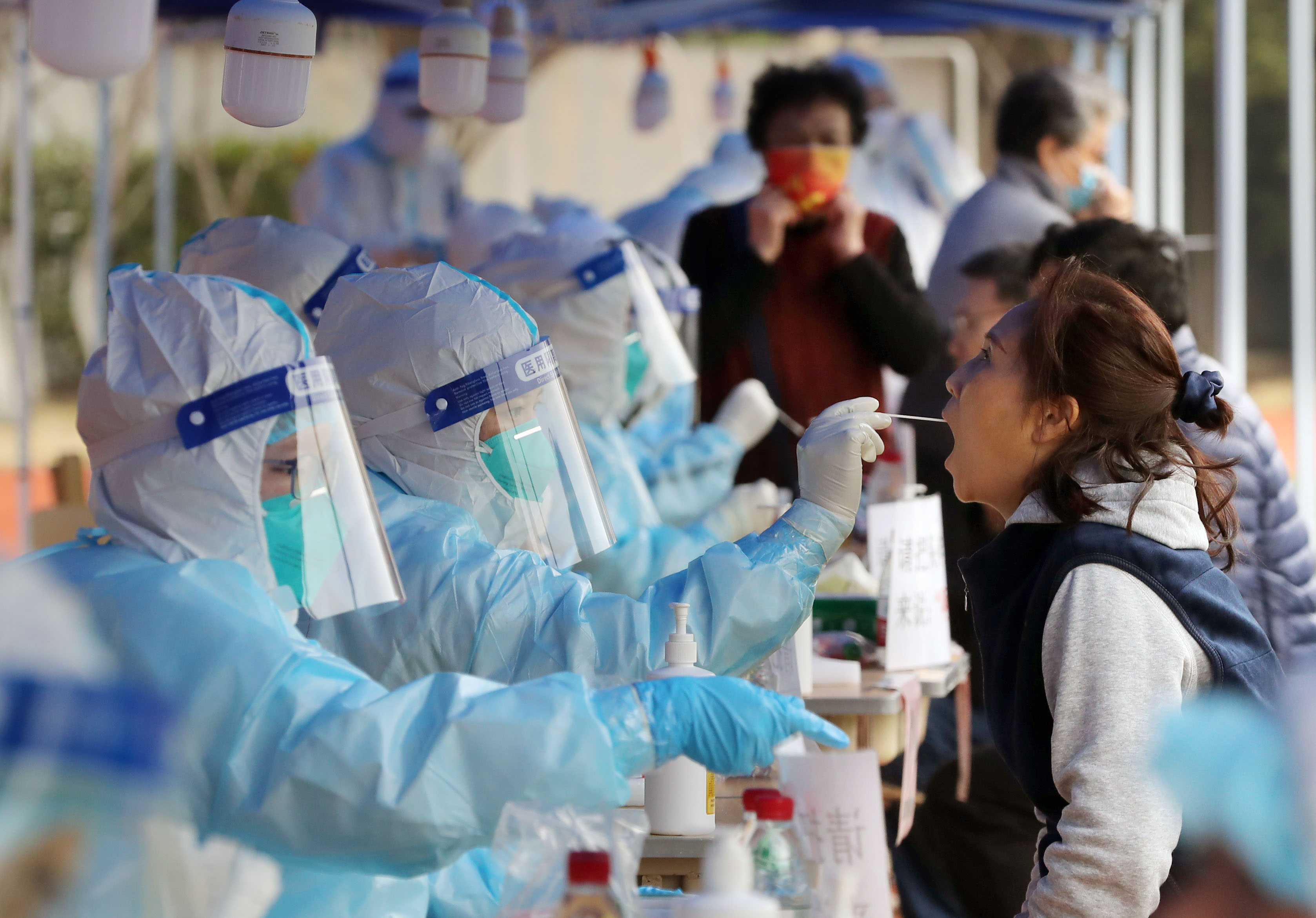When it comes to COVID-19, science matters
- By Tom Fowdy
 0 Comment(s)
0 Comment(s) Print
Print E-mail China.org.cn, March 21, 2022
E-mail China.org.cn, March 21, 2022

China is currently experiencing its second-ever worst outbreak of COVID-19. As of March 16, several areas have been placed into lockdown. Predictably, the stringent pandemic prevention and control measures by authorities have led to a number of claims being circulated in Western media that the continuation of its "zero-COVID" policies spells trouble for China's economy and the world at large.
As of early 2022, an increasing number of countries, such as the United Kingdom, the United States, and many others in Europe, have given up attempting to combat COVID-19, and foregone all restrictions, namely out of political and economic motivations. With successful vaccination campaigns, it is argued that restrictions are no longer needed, but in addition, these countries have also experienced significant resistance against attempting to fight the pandemic from their populations.
Given this trend, it has been frequently questioned "when" China will follow, with reporters arguing that the continual application of lockdowns and orders to work from home will hurt the Chinese economy. However, China made it clear during its annual "two sessions" meeting that any shift in policy will be made on a measure of science.
China is safeguarding the health and wellbeing of its own population in view to attaining proper immunity. In turn, all evidence points to the contrary, with the rushed and premature dropping of COVID-19 management for economic considerations having proven to be immensely costly.
Following China's highly successful vaccination campaign, it nonetheless faces the unique challenge of having a population of 1.4 billion people, which has given it less privilege in respect to Western countries, elongating the process. The country has so far administered a reported 3,198,272,000 doses, which is technically enough everyone. This figure also includes booster shots, which means work on achieving sustained levels of immunity is still ongoing. It is believed, in turn, that allowing the Omicron variant to spread could still put considerable numbers of people at risk and causing a potential overloading of hospitals. This would pose significant implications for rural provinces in China, which are generally less well-equipped than major cities.
Although Omicron provokes a less severe sickness overall compared with previous variants, China's own health authorities clearly do not believe "herd immunity" has been reached yet, as is illustrated by the soaring death tolls in countries that have abandoned pandemic containment measures. In the United States, deaths are nigh on 1 million, while in the United Kingdom, the seven-day average death toll is 147 per day (approximately 190,000 in total), something that has been effectively ignored by the public and the media. Is this an acceptable price to pay?
In addition, the economic impact of such policies on China's economy is overstated. Despite a winter which has consisted of restrictions, China's economic data for the month of February heavily exceeded expectations. China's ability to rapidly control and contain outbreaks goes contrary to the Western narrative, and has brought economic stability and certainty to the country and its markets. In turn, this has allowed it to maintain a strong economic performance throughout the pandemic.
This has come without having to resort to the Western approach of investing trillions to boost GDP, or simply neglecting managing the pandemic, allowing hundreds of thousands to die out of economic and political preference. China has shown its efforts to coordinate social and economic development with the pandemic containment.
As a result, China will continue to do what it always does and beat back these outbreaks. Now that March is here, the country faces warmer weather for the rest of the year, which will ease transmission rates accordingly. Either way, China seeks only scientific means to address the pandemic in order to save lives.
Tom Fowdy is a British political and international relations analyst and a graduate of Durham and Oxford universities. For more information please visit:
http://www.ccgp-fushun.com/opinion/TomFowdy.htm
Opinion articles reflect the views of their authors, not necessarily those of China.org.cn.
If you would like to contribute, please contact us at opinion@china.org.cn.





